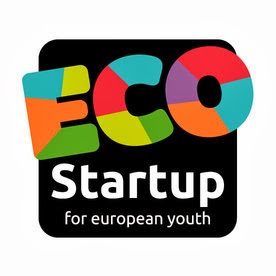
This blog entree is about Biovilla, a cooperative for sustainable development in Portugal, responsible for 55 hectares in Arrábida Natural Park. This project have three main bases: Environment (planting a food forest), Learning ship (school, workshops for sustainable development) and Nature Tourism (sustainable tourism).
I will talk about my project, I´ve been part of Biovilla since 2006, at the time, our project was just a dream to “save the world”. Our multidisciplinary team gets together when we didn’t know what really want to do, but for what we already knew: there is an option to make a better world, the world already has the solutions to make the right thinks for a sustainable development. Our founders were from Economics, Marketing/administration, Physics and Biologists, engineers of energy, environment arrived, accountant, architects but mostly people with different know how that wish to work together, learn with each other and make a better word. We fell in love with the design for sustainable development, called Permaculture. Considering three main ethics: People Care, Earth Care and Fair Share, we dreamed for a project that everything was connected, closing the cycle between all the people, environment and energy. We really believe that is the solution for most of the problems in this world, we have already enough knowledge for make things right, so our main target is to show and make the example for everyone, we want to influence all the people to live with a different kind of conscience and making real sustainable choices for the future.

When we started Biovilla, we get some help of many organizations and cooperatives. We were a completely new project, so we had our first time of a life, spreading our believes and showing what we were dreaming were a real better, sustainable and efficient way of project. To making things different you’ll need more patience and time than to repeat all the same method and mistakes. We need to learn different skills, bureaucrat tools, marketing, presentations skills, lots of things that you at the beginning you didn’t know that you needed.

For the future, we want to finish all projects in Biovilla, food forest, workshop center for sustainable development, and a place where people can experience the sustainable life style. After finished our actual dream project, we want to go to other part of our country and spread our example and influence other projects and after that, go to developing countries, where this kind of project make a really difference in the real life of needed people. We want to go to Africa, South America and Asia and make a food forest, construct green buildings with local materials and techniques, and show how to produce their own energy – heat, cooling and electric. We really want to make a different in the world, we want to show how everybody can life with the most comfortable way but also in a sustainable way.

One thing you need to know is that nothing is what we dream, there is a really need to adapt the structure, ideas and the way you think to develop your own project. With time and creation, nothing is equal from the starting point, different it’s good, even if at the beginning it’s not easy to accept, on the future you will that was for the best. Changes is a evolution of you project, but never letting go you proposals and ideals. All entrepreneurs need to know that there is no impossible ways. If you really have a dream project don’t give up at the first obstacle, you will find others solutions, others possibilities to realize your project. We “fought” and dreamed for three years before we official began our cooperative, if it’s not so fast ´how you dreamed, be patience, if you really believe you can realize any kind of project.
 May I
introduce to you Nordwerk recyclingDESIGN from Dresden, Germany? You are
wondering what they do? Honestly spoken, what they do … is garbage.
May I
introduce to you Nordwerk recyclingDESIGN from Dresden, Germany? You are
wondering what they do? Honestly spoken, what they do … is garbage.








